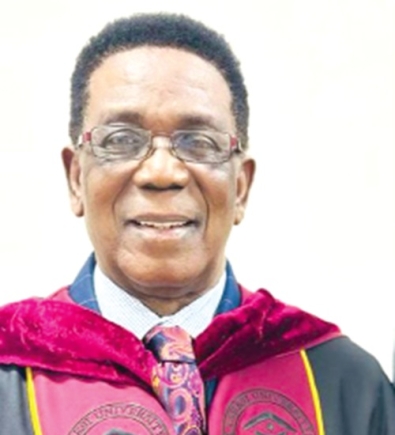In the 1980s, long before the Internet and social media were even conceived, I had two constant companions – radio and newspapers.
Those were the days of the Rawlings revolution, so literally every news bulletin started with a story about Chairman sharing his revolutionary pearls of wisdom in impeccable, nicely perfumed English at a gathering somewhere, with the ‘masses’ cheering wildly and singing revolutionary songs, even if they had hardly grasped what he said. They loved him without question.
Not far behind would be a story about Madam Konadu, her trademark duku (headgear) or red beret adorning her head, opening a gari processing factory or daycare centre somewhere as president of the 31st December Women’s Movement.
Stories about Committees for the Defence of the Revolution (CDRs), Workers for the Defence of the Revolution (WDRs) or communal labour-inspired public toilets and school blocks would be splattered around for added revolutionary effect.
Inky legends
Being no fan of pseudo-revolutions, I had to navigate carefully and away from these rather dreary, routine stories as one would a crocodile swamp.
On radio, aside from Dan Afari-Yeboah’s What Do You Know? quiz programme, which I loved, and a few other programs, I simply went international, finding refuge in the BBC Africa Service, Voice of America, Radio France International and Radio Gabon.
On the newspaper front, I did not have the luxury of going international, so I mostly consumed writers whose weekly columns I looked forward to. Henry Ofori (aka Carl Mutt), George Sydney Abugri, Prof. P.A.V Ansah, Albin Korem, Ajoa Yeboah-Afari and Merari Alomele were among the columnists who always left me breathless with their inky craftsmanship and inspired in me a love for reading and writing.
If anyone had prophesied to me in those teenage years that I would one day have a six-year-old weekly column in the Daily Graphic, I would have called them a lunatic or charlatan.
Yankah effect
Of all the writers I was exposed to at that stage of my life, it was Professor Kwesi Yankah, with his Woes of a Kwatriot weekly column in The Mirror who had the most profound impact on me and helped shape my writing style in many ways.
His mastery over the English language, with a regular infusion of Twi or Fante lexicon, underlined by sharp wit and biting satire when addressing social or political issues especially in the risky political climate of the revolution was simply pure gold, as was his sense of evoking imagery to illustrate his point.
For instance, in describing the scenario in Cape Coast during a particular political party’s campaign event in the run-up to the 1992 Elections, he referred to the bored natives hanging out of their windows and watching events unfold, “roasting and frying their Fante as they spoke”, evoking how Fantes are reputed to love seasoning their spoken language with English words.
Every week, I would carefully cut out his article from the newspaper and glue it unto a page in an old magazine, and every now and then I would feast greedily on my precious collection.
Crossing paths
When I went on to read Linguistics in my first year at the University of Ghana in 1988/89, I was delighted and starstruck to see my mentor in the flesh as he taught my class.
For reasons I could not fathom at the time, I did not go ahead to introduce myself as perhaps his biggest fan.
Our paths crossed once again many years on at the Ministry of Education, where he was Minister of State in Charge of Tertiary Education and I was Press Secretary to the Minister.
This time round, I revealed myself to him and he was very warm about it all.
Initially, the thought of having to write speeches for him on certain occasions filled me with dread.
How does a mere mortal write speeches for a professor who was playing with words and chewing them casually as one would eat roasted corn long before one was born?
Every now and then when he called me over to his office to discuss his speeches, he would ask me how my speechwriting was coming along.
I would respond, ‘Prof, me brofo no asa’ (literally, ‘Prof, my English is finished’), whereupon he would break into a hearty laugh and assure me it would all come back.
Prof. writes regularly on Facebook, with quite a steady following. I continue to enjoy his pieces and take inspiration from them.
Emeritus!
For a long time, I thought a professor was a professor, simple. As some would put it in quasi-political language with appropriate apologies, ‘all professor be professor’.
Well, not quite. The reality is that just like chiefs’ umbrellas, there is a ranking system, with an emeritus sitting on top of the hierarchy as a professor of professors of sorts – one who has retired from continuous employment and is given that title as an honour following a distinguished career.
When the news broke recently that the former Vice-Chancellor of Central University, former Pro-Vice-Chancellor at the University of Ghana, Legon, my former lecturer, boss and mentor had been appointed Emeritus Professor by Ashesi University ‘in recognition of his extensive contributions to academia, linguistics and tertiary education’, my heart leapt with joy and then surged with pride to bursting point. It is a worthy honour.
meritus Prof, I salute you and I thank you.
I must urgently seek audience for some inspiration, because truth be told, ‘me brofo no asa!”
Rodney Nkrumah-Boateng,
Head, Communications & Public Affairs Unit,
Ministry of Energy.
E-mail: rodboat@yahoo.com

